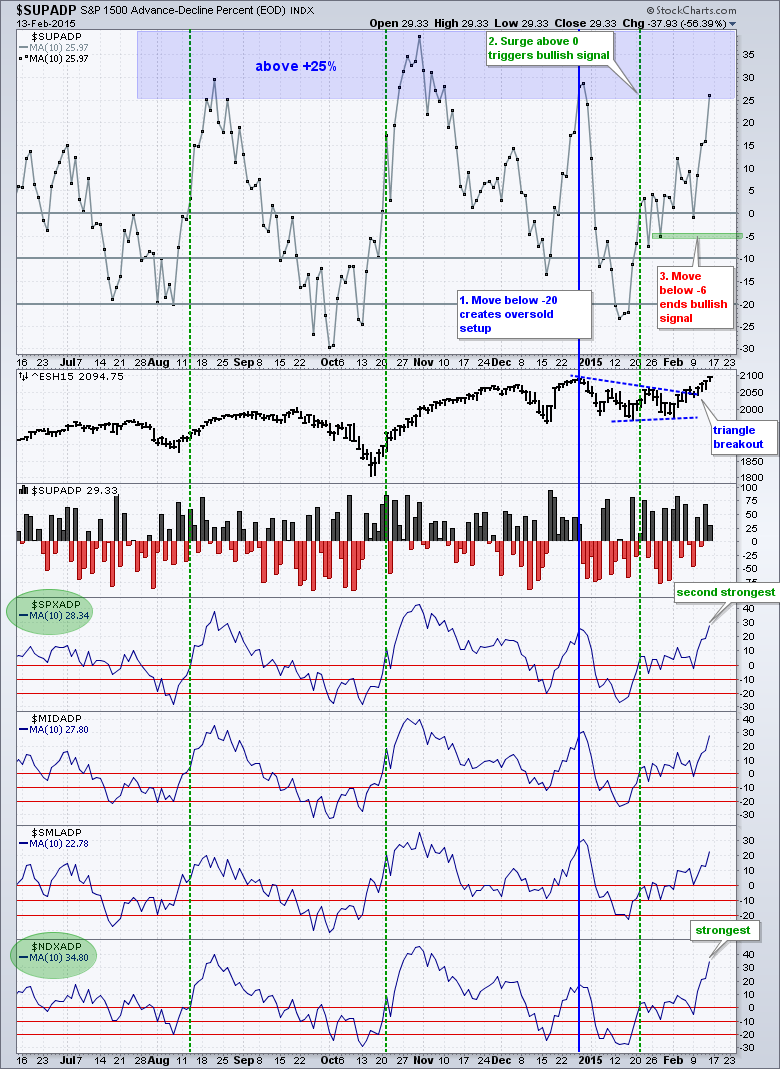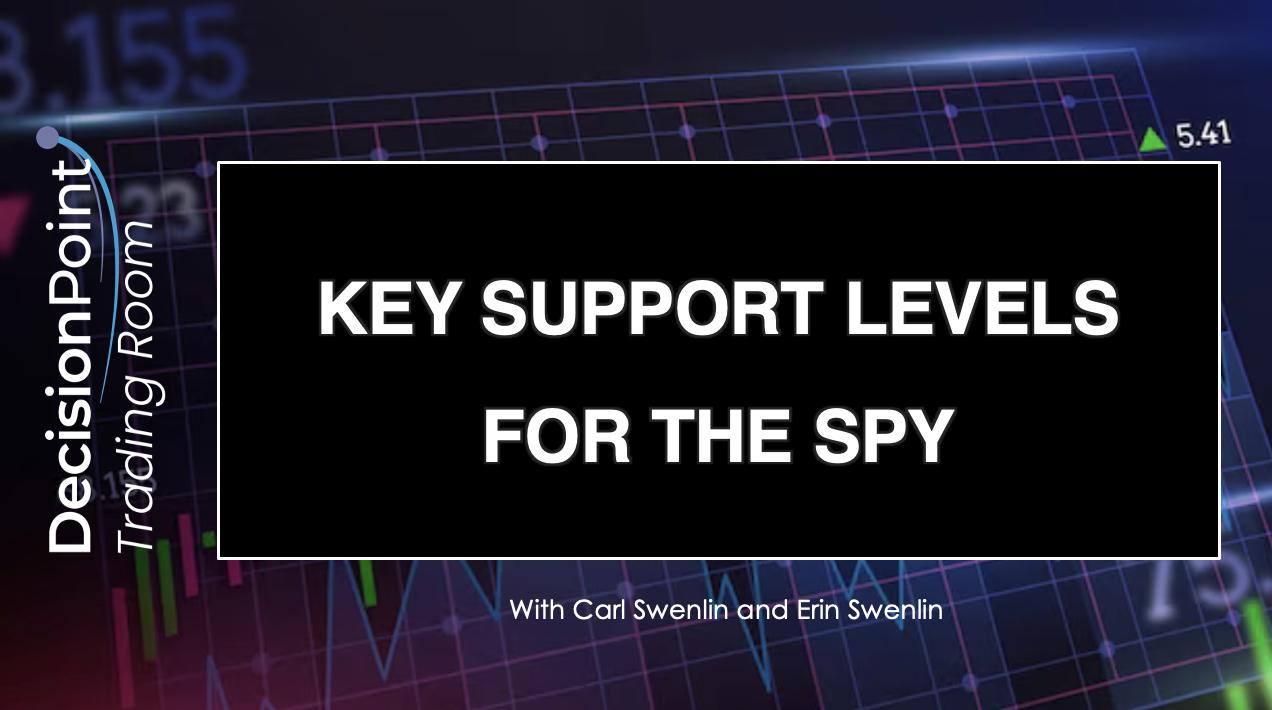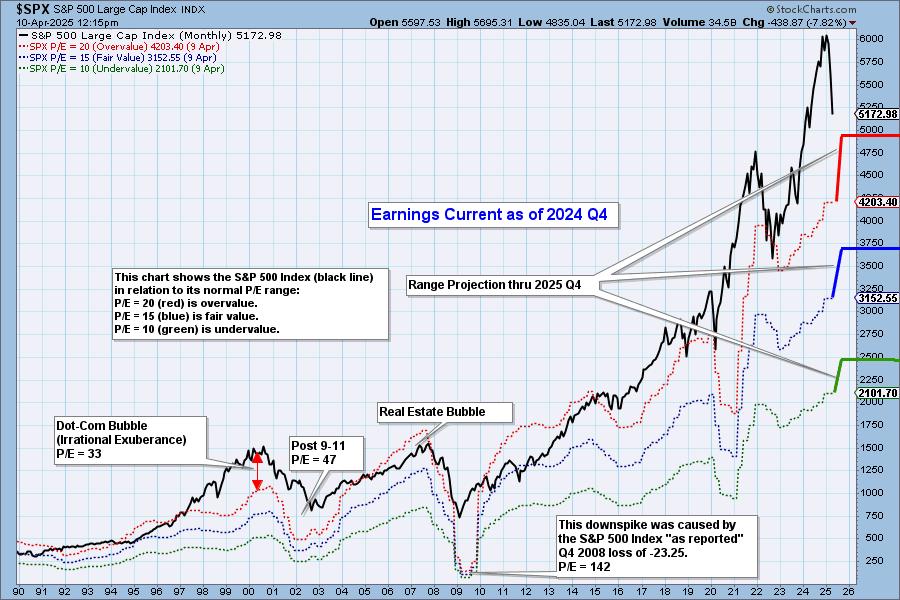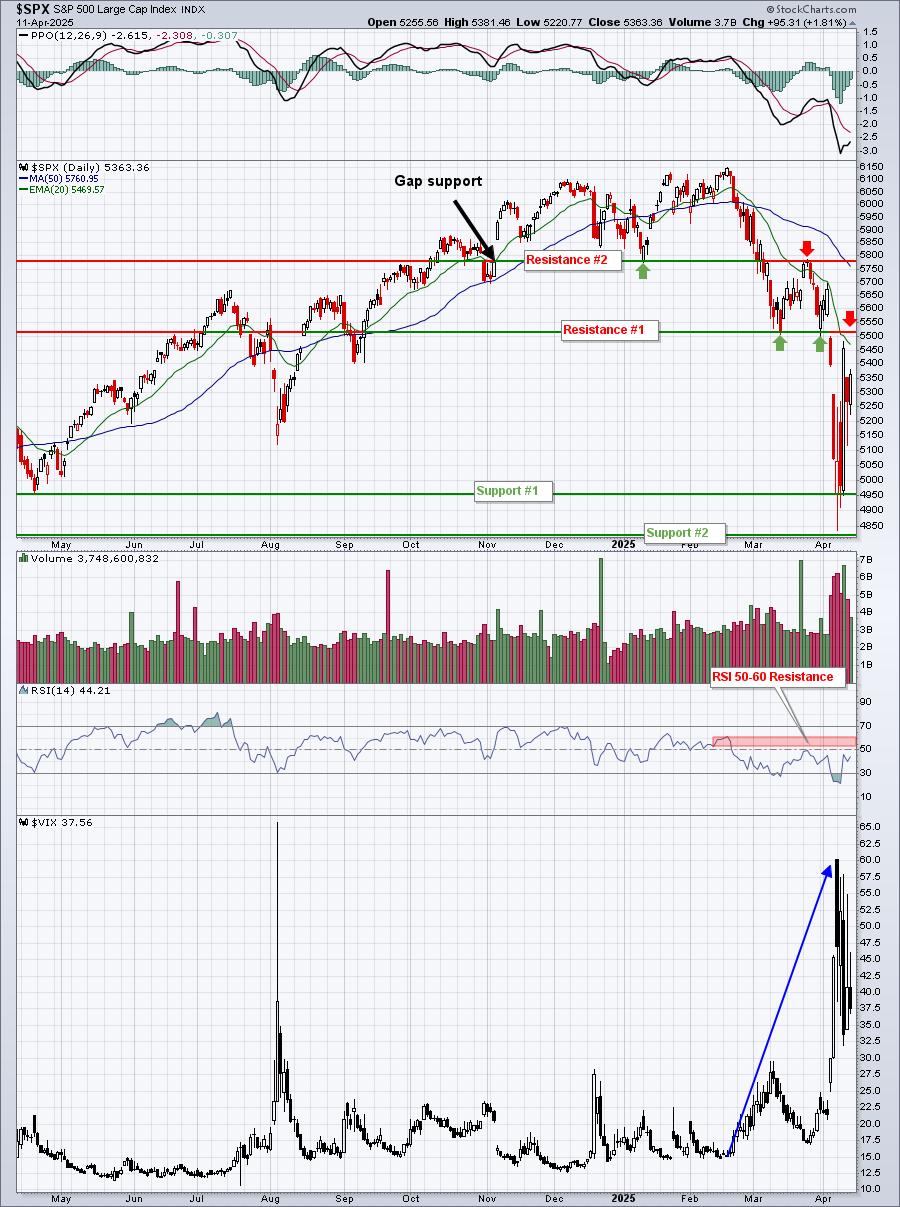Stocks continued higher last week with the S&P 500, Nasdaq 100 and Russell 2000 hitting new highs on Friday. Techs led the rally as xrt6QQQ gained 3.67% and XLK surged 3.77%. Utilities did not partake as Treasury yields rose again last week. The Home Construction iShares (ITB) led the market with a new high and 3.19% gain. The Retail SPDR (XRT) also hit a new high, but the weekly gain (2.16%) was not that impressive. Strength throughout the tech sector was impressive. The Networking iShares (IGN), Internet ETF (FDN), Cloud Computing ETF (SKYY), Semiconductor SPDR (XSD) and Software iShares (IGV) surged over 3.5% and several hit new highs.
**This chart analysis is for educational purposes only, and should not
be construed as a recommendation to buy, sell or sell-short said securities**
Short-term Overview (Tuesday, 17-February-2015):
- Short-term breadth remains bullish, but is getting frothy.
- All five risk indicators are positive.
- SPY, QQQ and IWM are in short-term uptrends, but short-term overbought after big moves this month.
- TLT is in a short-term downtrend, but short-term oversold after a 6+ percent decline this month.
- UUP hit a new high in late January and then formed a triangle the last few weeks.
- USO is choppy and untradeable.
- GLD broke down on 29-Jan and extended its downtrend last week.
The E-mini extended its gained on Friday and closed at a 52-week high. The E-mini is up around 100 points in February and in a clear uptrend. This trend, however, is getting a little extended. Broken resistance in the 2060 area turns first support to watch on a pullback.
Breadth remains short-term bullish. Note that the 10-day SMA for S&P 1500 AD Percent ($SUPADP) moved above +25% for the fourth time since August. This means short-term breadth is considered overbought, but not bearish. I will leave my bearish threshold at -6% and stay bullish until a cross below this level.
All five risk indicators remain positive for stocks. In particular, consumer discretionary is outperforming consumer staples, stocks are outperforming Treasuries and the Junk Bond ETF is outperforming the Investment-Grade Bond ETF. These three clearly point to risk on. The RSP:SPY ratio has been flat since early February. This means the equal-weight S&P 500 is simply performing in-line with the cap-weight S&P 500.
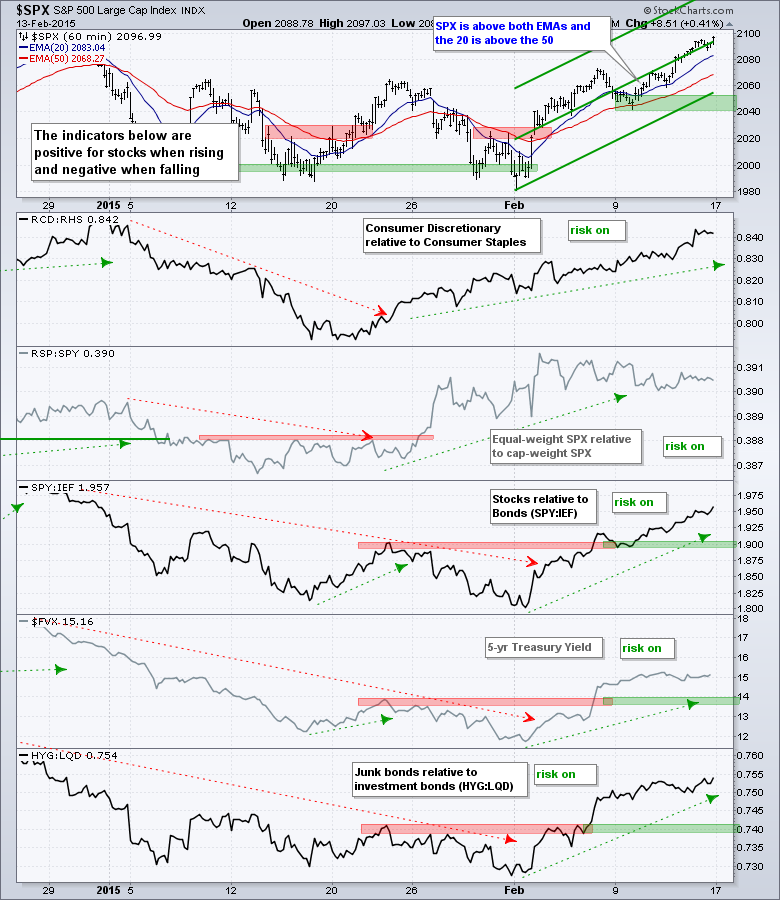
The short-term evidence remains bullish, but the major index ETFs are getting a little overbought because SPY, IWM and QQQ are up around 5% in two weeks. Even though stocks can become overbought and remain overbought, overbought conditions could give way to sideways trading in the coming days. The Raff channels and last week's lows mark key support levels for QQQ, SPY and IWM.
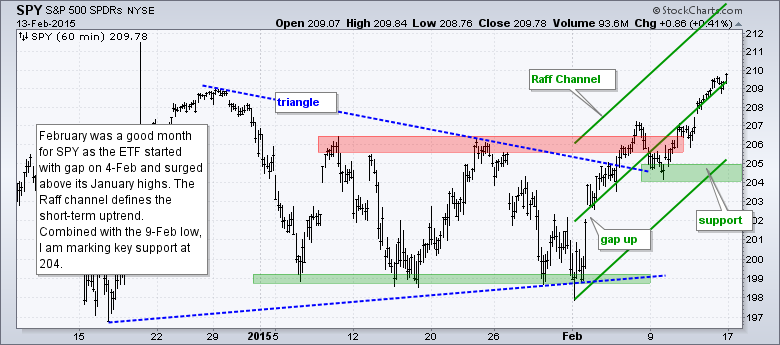
**************************************************************
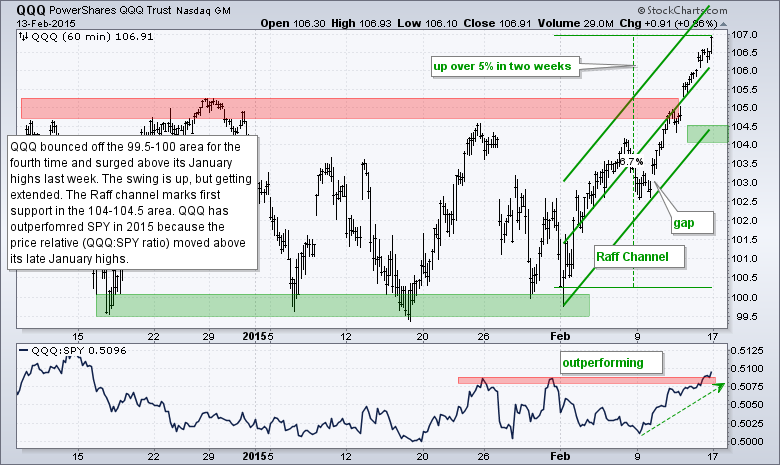
**************************************************************
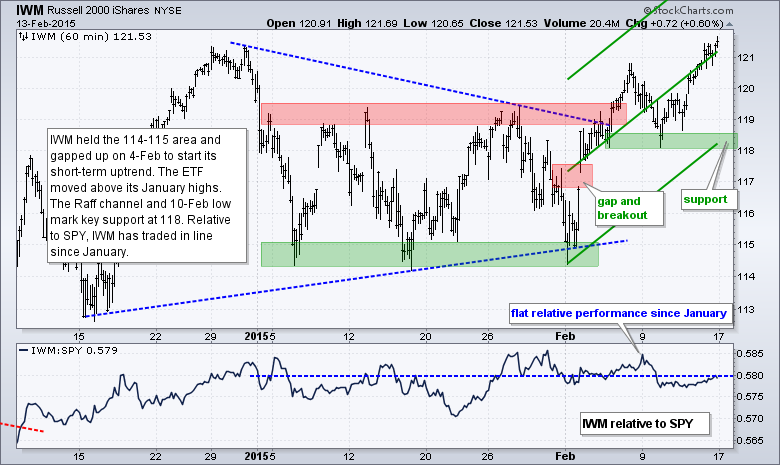
**************************************************************
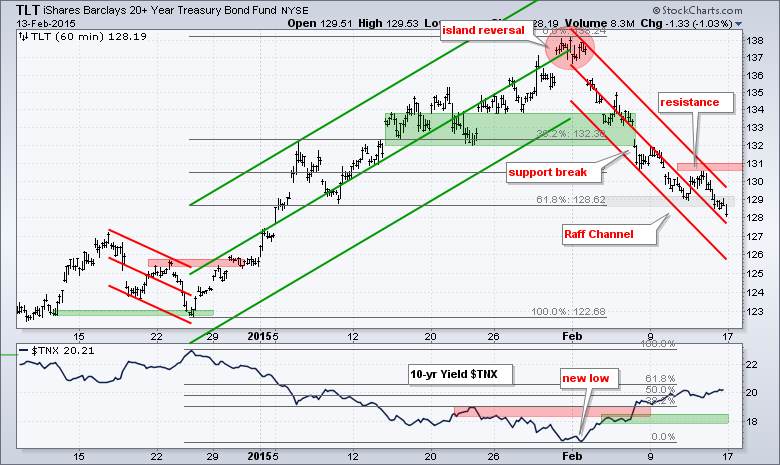
**************************************************************
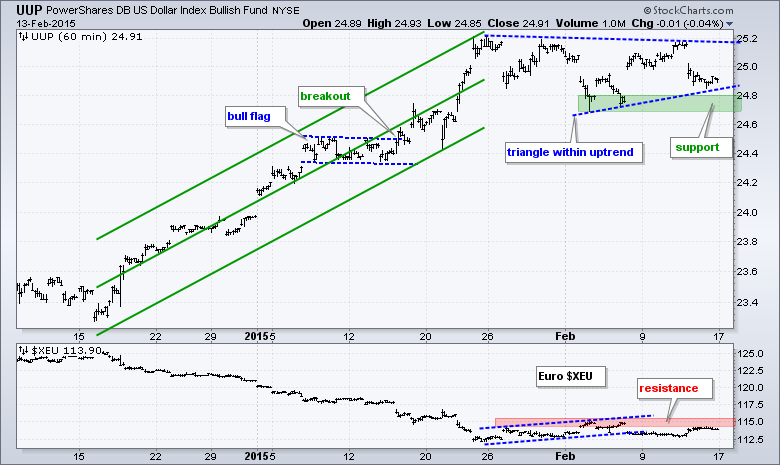
**************************************************************
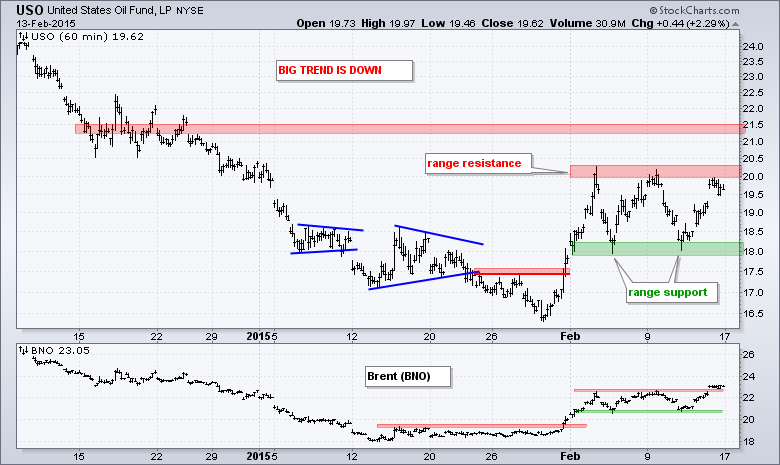
**************************************************************
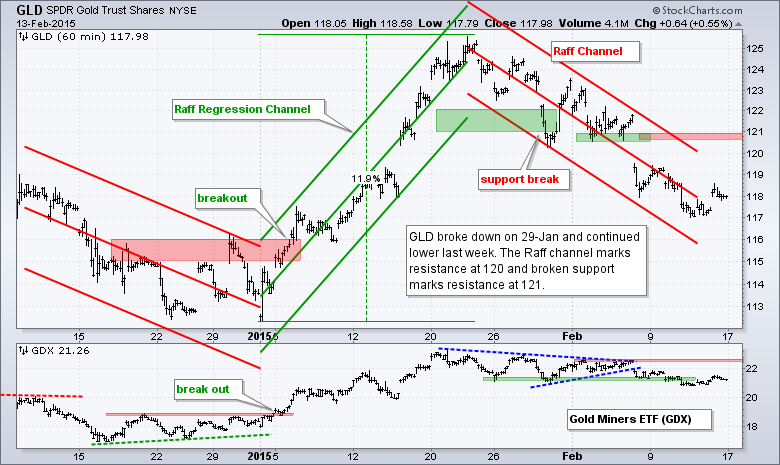
***************************************************************
Key Reports and Events (all times Eastern):
Tue - Feb 17 - 08:30 - Empire Manufacturing
Tue - Feb 17 - 10:00 - NAHB Housing Market Index
Wed - Feb 18 - 07:00 - MBA Mortgage Index
Wed - Feb 18 - 08:30 - Housing Starts/Building Permits
Wed - Feb 18 - 08:30 - Producer Price Index (PPI)
Wed - Feb 18 - 09:15 - Industrial Production
Wed - Feb 18 - 14:00 - FOMC Minutes
Thu - Feb 19 - 08:30 - Initial Jobless Claims
Thu - Feb 19 - 10:00 - Philadelphia Fed
Thu - Feb 19 - 10:00 - Leading Indicators
Thu - Feb 19 - 10:30 - Natural Gas Inventories
Thu - Feb 19 - 11:00 - Oil Inventories
Mon - Feb 23 - 10:00 - Existing Home Sales
Tue - Feb 24 - 09:00 - Case-Shiller 20-city Index
Tue - Feb 24 - 10:00 - Consumer Confidence
Wed - Feb 25 - 07:00 - MBA Mortgage Index
Wed - Feb 25 - 10:00 - New Home Sales
Wed - Feb 25 - 10:30 - Oil Inventories
Thu - Feb 26 - 08:30 - Initial Jobless Claims
Thu - Feb 26 - 08:30 - Consumer Price Index (CPI)
Thu - Feb 26 - 08:30 - Durable Goods Orders
Thu - Feb 26 - 09:00 - FHFA Housing Price Index
Thu - Feb 26 - 10:30 - Natural Gas Inventories
Fri - Feb 27 - 08:30 - GDP
Fri - Feb 27 - 09:45 - Chicago PMI
Fri - Feb 27 - 09:55 - Michigan Sentiment
Fri - Feb 27 - 10:00 - Pending Home Sales
This commentary is designed to stimulate thinking. This analysis is not a recommendation to buy, sell, hold or sell short any security (stock ETF or otherwise). We all need to think for ourselves when it comes to trading our own accounts. First, it is the only way to really learn. Second, we are the only ones responsible for our decisions. Think of these charts as food for further analysis. Before making a trade, it is important to have a plan. Plan the trade and trade the plan. Among other things, this includes setting a trigger level, a target area and a stop-loss level. It is also important to plan for three possible price movements: advance, decline or sideways. Have a plan for all three scenarios BEFORE making the trade. Consider possible holding times. And finally, look at overall market conditions and sector/industry performance.

